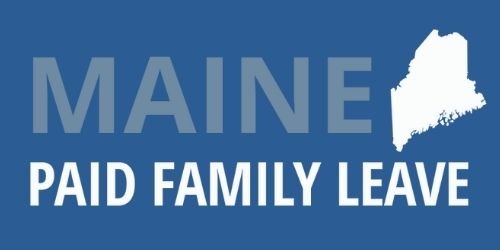Tiarra’s Story
It is well known that the aging workforce and population decline is one of the most pressing long-term challenges facing Mainers today.
Senator Angus King has referred to the issue as “a negative demographic time bomb.” However, a paid leave policy is a “two birds, one stone” solution that would directly address the myriad challenges Mainers face as a result of this inverse demographic problem. (Paid leave) can potentially:
Reduce poverty and economic strain by addressing families’ needs.
Reduce the cost of care for aging Mainers.
Reduce health & childcare costs for Maine families.
Provide benefits that would attract young families to Maine.
Increase family and community resilience in times of economic hardship.
While politicians on both sides of the political divide have been paying lip service to ‘family values’ in their campaigns for decades, passage of comprehensive paid leave legislation has been stagnant for nearly 40 years. Often the reason for this has been disagreements regarding cost of such a program, but according to a 2016 report by the Center for American Progress, “Americans lose $20.6 billion every year in wages as a result of needing to take family and medical leave.” Currently only a handful of states and the District of Columbia offer workers paid leave. Maine has an opportunity to join this growing trend toward improved quality of life and economic security for families. Maine cannot afford to miss out on this opportunity, which would make our state an attractive and competitive place for young folks to work, raise their children, and live out their golden years.
Maine is often referred to as ‘the oldest state in the nation.’ The population of Mainers over the age of 65 is rapidly increasing while birthrates dwindle. As we age, medical problems will arise and many of us will need assistance and care from our families. According to the Maine Council on Aging, there are 137,000 informal family caregivers in Maine who provide support to aging parents, spouses, and siblings. They do so with little to no support, and at great mental, emotional, and financial cost. Emerging evidence from states that have adopted paid leave programs are showing positive trends in family caregiving in which the reduction of nursing home use results in the reduction of Medicare costs for the elderly. Nobody should have to choose between caring for a loved one and their livelihood, and no aging person should be made to feel like a burden in their time of need. Comprehensive paid leave would help mitigate the cost of care for both elders and their families, and decrease social stigma and isolation.
For me, Maine was an amazing place to grow up. The bounty of natural beauty and kind and caring communities makes life in our state truly unique. However, poverty, lower than average wages, and a lack of social resources for affordable health and childcare services are barriers which keep many of our communities from truly thriving.
As members of the millennial generation, my husband and I have continued to hold off on having children for fear of not being able to afford their care. This is becoming a more and more common story among friends and neighbors of my age group. As a consequence of the Great Recession coupled with the rising cost of education, and stagnating wages, my generation is the first in decades to lag behind its predecessors in economic well-being. Saddled with debt and frequently unable to afford the exorbitant cost of health care and housing, more and more of my peers are delaying or giving up altogether on their dreams of building a family. A comprehensive paid leave program would alleviate many of these challenges, by allowing young Mainers to begin family planning without having to borrow against future financial security in the form of lost wages for leave-taking.
Many of my peers who do have children are also beginning to feel the squeeze of caring for their own children while also providing for the care of their aging parents. While I do not personally have children, I had to take leave to care for my mother following a serious spinal surgery. I had to use my own accrued sick time as my work does not offer leave for family caregiving.
This left me dangerously low on accrued hours. When I fell ill for two weeks with a serious infection later that year, I was told my only options were to borrow against future time or take unpaid leave. Had I been able to make use of paid leave to care for my mother, I would not have been put in such a financially vulnerable position.
Ask a Mainer how they are doing and they are likely to tell you, no holds barred. You have only to turn to your neighbors, your friends, or your communities to find stories of hardship, of love for family, and of economic and emotional strain. Herman Melville once wrote, “And so the universal thump is passed round and all hands should rub each other’s shoulder-blades, and be content.” We have a social responsibility to have each other’s backs, and to provide the security, care, and opportunity Maine families need to prosper during hardship. Comprehensive paid leave is a universal answer to that universal thump, and a solution which will benefit all Mainers in their time of need.
Have a story to tell? Visit our paid leave story form and join the conversation!

